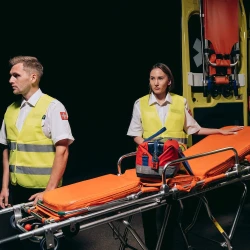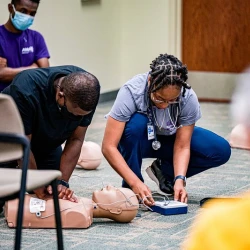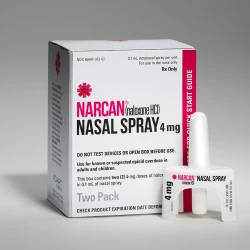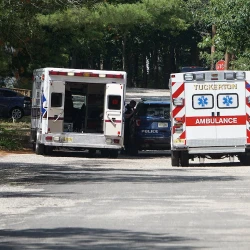Every second counts when a medical emergency unfolds. Whether it's a car accident, cardiac arrest, or a severe allergic reaction, immediate medical intervention can be the difference between life and death. This is where Emergency Medical Technicians (EMTs) come into play. Properly trained EMTs can provide rapid, life-saving care during those critical moments. Here, we'll delve into the importance of EMT training for medical emergencies and how students at the Life Safety Institute are uniquely prepared to become life-saving heroes.
Understanding the Role of EMTs
EMTs are the first medical professionals typically on the scene during emergencies. Their primary role is to stabilize and transport patients to medical facilities for further treatment. From assessing the patient's condition to performing vital life-saving techniques and preparing the individual for the journey to a hospital, the EMT's responsibilities are both varied and critical.
The Essence of EMT Training
Medical emergencies are unpredictable, making the expertise of an EMT invaluable. Training is crucial for several reasons:
-
Rapid Assessment Skills: EMT training equips individuals to quickly evaluate a patient's condition and determine the most pressing medical needs.
-
Life-Saving Techniques: EMTs are taught essential life-saving skills, such as Basic Life Support (BLS), cardiopulmonary resuscitation (CPR), and how to use automated external defibrillators (AEDs).
-
Effective Communication: Clear communication is pivotal, both at the scene and when handing over the patient to hospital staff.
-
Safe Transport: Ensuring the safe and efficient transport of patients to medical facilities is paramount.
The Life Safety Institute: Setting a Gold Standard
The Life Safety Institute (LSI) stands out as a beacon of excellence in EMT training. Here's how LSI students are primed for life-saving action:
-
Rigorous Curriculum: LSI offers a curriculum that covers both theoretical knowledge and practical skills. From understanding human anatomy to mastering emergency procedures, students receive comprehensive training.
-
Simulated Scenarios: Students regularly engage in simulated emergency scenarios, which provide invaluable hands-on experience. This training not only hones their skills but also prepares them for the emotional and psychological stresses of real-life emergencies.
-
Experienced Instructors: LSI boasts a team of experienced EMTs and paramedics as instructors, providing students with insights from those who have been on the front lines.
-
Latest Equipment and Technology: LSI ensures students are familiar with the latest medical equipment and technology, ensuring they're ready for real-world challenges.
Beyond the Basics: Holistic Training
LSI understands that being an effective EMT goes beyond medical skills. Therefore, their training approach is holistic:
-
Psychological Preparedness: Dealing with emergencies can be emotionally taxing. LSI provides guidance on managing stress and emotional well-being.
-
Ethics and Empathy: EMTs often encounter patients at their most vulnerable. Training at LSI emphasizes the importance of treating every individual with respect, dignity, and empathy.
Continuous Learning and Upgradation
The field of emergency medical care is ever-evolving. LSI places a strong emphasis on continuous learning:
-
Regular Workshops: LSI hosts workshops where students can learn about the latest advancements in emergency care.
-
Refresher Courses: Alumni are encouraged to return for refresher courses, ensuring they remain at the forefront of emergency medical care.
Conclusion
In the face of medical emergencies, time and expertise are of the essence. EMTs, equipped with the right training, play a pivotal role in ensuring positive outcomes during these crises. The Life Safety Institute, through its intensive, holistic, and community-focused approach, ensures that its students are more than prepared. They're not just trained to be EMTs; they're nurtured to be life-savers, community leaders, and pillars of strength in the direst of circumstances.




